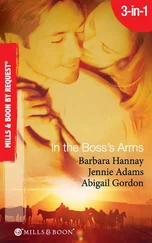Richard Gordon - SURGEON AT ARMS
Здесь есть возможность читать онлайн «Richard Gordon - SURGEON AT ARMS» весь текст электронной книги совершенно бесплатно (целиком полную версию без сокращений). В некоторых случаях можно слушать аудио, скачать через торрент в формате fb2 и присутствует краткое содержание. Жанр: Юмористическая проза, на английском языке. Описание произведения, (предисловие) а так же отзывы посетителей доступны на портале библиотеки ЛибКат.
- Название:SURGEON AT ARMS
- Автор:
- Жанр:
- Год:неизвестен
- ISBN:нет данных
- Рейтинг книги:5 / 5. Голосов: 1
-
Избранное:Добавить в избранное
- Отзывы:
-
Ваша оценка:
- 100
- 1
- 2
- 3
- 4
- 5
SURGEON AT ARMS: краткое содержание, описание и аннотация
Предлагаем к чтению аннотацию, описание, краткое содержание или предисловие (зависит от того, что написал сам автор книги «SURGEON AT ARMS»). Если вы не нашли необходимую информацию о книге — напишите в комментариях, мы постараемся отыскать её.
SURGEON AT ARMS — читать онлайн бесплатно полную книгу (весь текст) целиком
Ниже представлен текст книги, разбитый по страницам. Система сохранения места последней прочитанной страницы, позволяет с удобством читать онлайн бесплатно книгу «SURGEON AT ARMS», без необходимости каждый раз заново искать на чём Вы остановились. Поставьте закладку, и сможете в любой момент перейти на страницу, на которой закончили чтение.
Интервал:
Закладка:
Alec quickly found that qualification, like marriage, brought more problems than it settled. His first difficulty was to win a resident post at Smithers Botham. Failing to get a 'house job' in your mother hospital was like being expelled from school, it stuck for life. Besides, he was going to specialize. All the students were going to specialize, their teachers (who were specialists) having freely laced their instruction with their opinion of family doctors as dangerous fumbling ignoramuses. But specialize in what? Psychiatry, Alec decided. It was intellectual, and you never got your hands messy. There was no psychiatric houseman, so as a first step he must land a house physician's appointment. But unfortunately for Alec the jobs had come to be decided solely by Mr Cramphorn, who dominated the selection committee. His methods were simple. He would look through the list of applicants, grunting, and strike out with his gold pencil all coloured students, Jews, those with un-English sounding names, any he had taken a dislike to, and any he had for some reason never heard of. And Mr Cramphorn had taken a fierce dislike to the Trevose family. He thought Graham's treatment of Clare outrageous, and after he had lavished his rabbits on her, too. Desmond, he admitted grudgingly, must be given a job, as the son of a Blackfriars consultant. If that unspoken rule lapsed the whole structure of the hospital might tumble, and there were changes enough in the wind already. But Alec could be sacrificed. In the end, Mr Cramphorn compromised by making Alec the resident anaesthetist, this speciality, Mr Cramphorn believed, being reserved for those unfitted for the practice of medicine at all.
Alec had never administered an anaesthetic in his life, but luckily John Bickley was an indulgent master. He was used to getting the duds. John had been working for Mr Cramphorn and Mr Twelvetrees in the general theatres of Smithers Botham itself since his row with Graham, who often enough had wished him back. But he was not a man to relent on his own rashness. Alec was scared of Mr Cramphorn, but discovered that he treated his anaesthetist exactly as he treated his prewar chauffeur, an underling expected to do his job and keep out of the conversation. Otherwise his new occupation seemed, like the war, ninety per cent boredom and ten per cent panic. He started bringing books into the theatre, reading them hidden in the sterile towels screening the unconscious patient's head. Having a quick mind he could demolish even a Victorian novel in two or three operating sessions. Alec was never sure of the effect of his anaesthetics on his patients, but he felt they were improving his own mind considerably. He was becoming more intellectual and cultured than ever. Desmond meanwhile performed the duties of a house-surgeon, with much correctitude and distinction.
Alec's second problem was his political allegiance. The general election of July 1945 was a nervous experience for the medical profession. Like Henry the Eighth's monks, the doctors quivered, half in indignation and half in fright, as schemes for their official disposal reached their ears. The hospitals were apparently to be grabbed, not only inefficient little institutions maintained by ladies selling paper flags, but those as proud as Blackfriars itself, even though it most regrettably existed at the time only as a pile of rubble with pretty wild flowers growing on it. It would all wreck the 'doctor-patient relationship', everyone declared at Smithers Botham, and though nobody knew exactly what this meant, it was a telling phrase with a ringing note to it, and anyway a substitute for whistling to keep your spirits up.
How should he cast the first vote of his life? Alec wondered. The newspapers seemed poor instruments of political education. The cartoons at least made the issue simple, between bad bald men in top hats and good clean-cut ones in overalls.' The People' came into it a good deal. Alec rather distrusted The People, who were sadly unintellectual, indeed somewhat dim. Sensitive to the doctors' vote, the local candidates presented themselves on successive nights in the Smithers Botham assembly hall. The Conservative was plump and confident, and based his persuasion on the fact that the Cabinet were a very decent set of chaps (he had been to school with many of them). The Labour man was hollow-chested and nervously respectful, and based his persuasion on the fact that someone was rude to him in a Labour Exchange during the thirties. Mr Cramphorn clapped the first oration to the echo, and walked out of the second.
Alec decided to support Labour, because he learned Desmond was voting Tory. In the end he was too busy in the operating theatre to reach the polls, and the hollow-chested man won handsomely. Mr Cramphorn stayed at home for a week's sulk. But worse was in store. He appeared in the theatre at the beginning of August white and trembling. 'They sang the _Red Flag,' _he muttered. 'Actually in the House of Commons! Good God! Some woman danced in the benches. It's the end.' But it wasn't. The next day a patient addressed him as 'Mate'. Mate! To Mr Cramphorn, who had given a lifetime to the curing of the poor, who felt the deepest concern for their ills and pains, just like the old Tsars of Russia for their serfs. Social order and sanity were sliding everywhere. They would be swinging from the lamp-posts next. He stayed at home for a month, and his housekeeper sent a message to say he was very poorly.
Alec's next concern was finding his mother about to become a G.I. bride.
Edith Trevose had spent the war in a small Devon seaside town, in a guest-house whose rooms were furnished for a fortnight's summer endurance at the most, but had been occupied since 1939 by elderly middle-class guests from London who complained increasingly about the food, the cooking, the war in general, and each other. Edith had been a typist with a Gray's Inn solicitor, but decided to help a friend run the place as her 'war work'. She was still pretty, and the sun of her affections, which had dawned upon Graham and shone through the noonday of her life on his brother, now glowed upon her son Alec, and was crossed by the first long restful shadows of the menopause. Edith had a split social position in the town. However much she tried to disguise it from herself, in the boarding-house she was taken as a servant. When twice a week she lent a hand in the small local hospital, she was respected by everyone as the widow of a medical missionary and the sister-in-law of Graham Trevose himself. Edith bore the discrepancy cheerfully. She had put up with more disagreeable places in life than the guesthouse, and always reflected that the irritations of others, like their illnesses, though painful to witness could hardly kill her.
In the summer of 1943 something happened to change the town's face more alarmingly than the war itself. Strange uniforms, strange vehicles, and strange habits became evident everywhere. The Americans poured from a near-by camp to amuse themselves, having to draw less on their supplies of cash (which were said to be limitless) than on those of their native enthusiasm and optimism. Strange soft-packaged cigarettes, chocolate bars, chewing-gum, and tinned beer circulated everywhere, and the girls' hair-styles improved sensationally. The Americans had glamour, in a land which was short of it outside the overpacked cinemas. All were assumed to come from spacious and labour-saving apartments in Manhattan, though most lived in towns even sleepier than a Devon village, and knew of their hosts only from their official guide-book, which told them not to say 'bloody', that the British could take any amount of aerial bombardment, and were deeply grateful for all the dried egg.
Edith met Hal White at the hospital. He was a doctor, a captain, about her own age, thin, with a large Adam's apple, glasses like Glenn Miller's, and given to long periods of deliberation before opening his mouth about anything. He offered her a packet of Life Savers and asked her to a dance. Edith hesitated. Jennifer, the girl who helped in the kitchen, might be there. Hal explained it was an officers only affair, and she accepted. She loved dancing. It would be really quite fun to be taken out by a man again. And of course he was a doctor, and therefore a gentleman.
Читать дальшеИнтервал:
Закладка:
Похожие книги на «SURGEON AT ARMS»
Представляем Вашему вниманию похожие книги на «SURGEON AT ARMS» списком для выбора. Мы отобрали схожую по названию и смыслу литературу в надежде предоставить читателям больше вариантов отыскать новые, интересные, ещё непрочитанные произведения.
Обсуждение, отзывы о книге «SURGEON AT ARMS» и просто собственные мнения читателей. Оставьте ваши комментарии, напишите, что Вы думаете о произведении, его смысле или главных героях. Укажите что конкретно понравилось, а что нет, и почему Вы так считаете.






